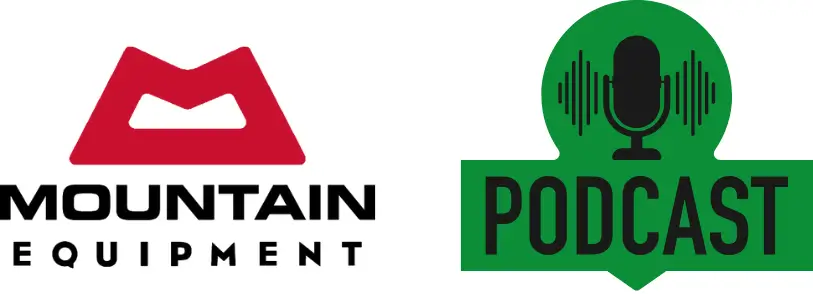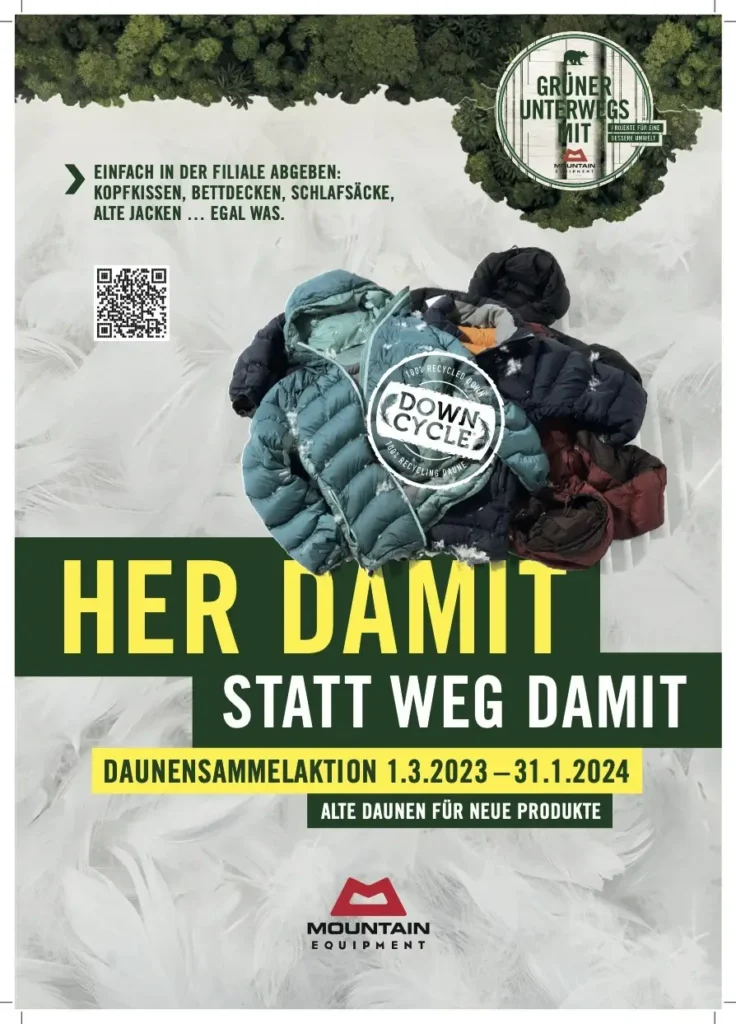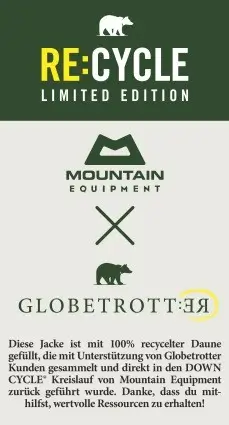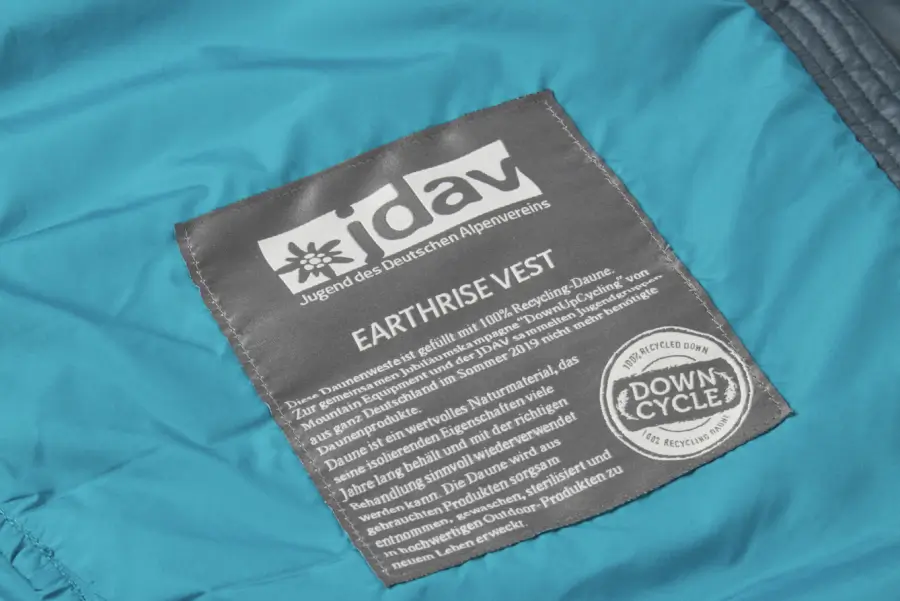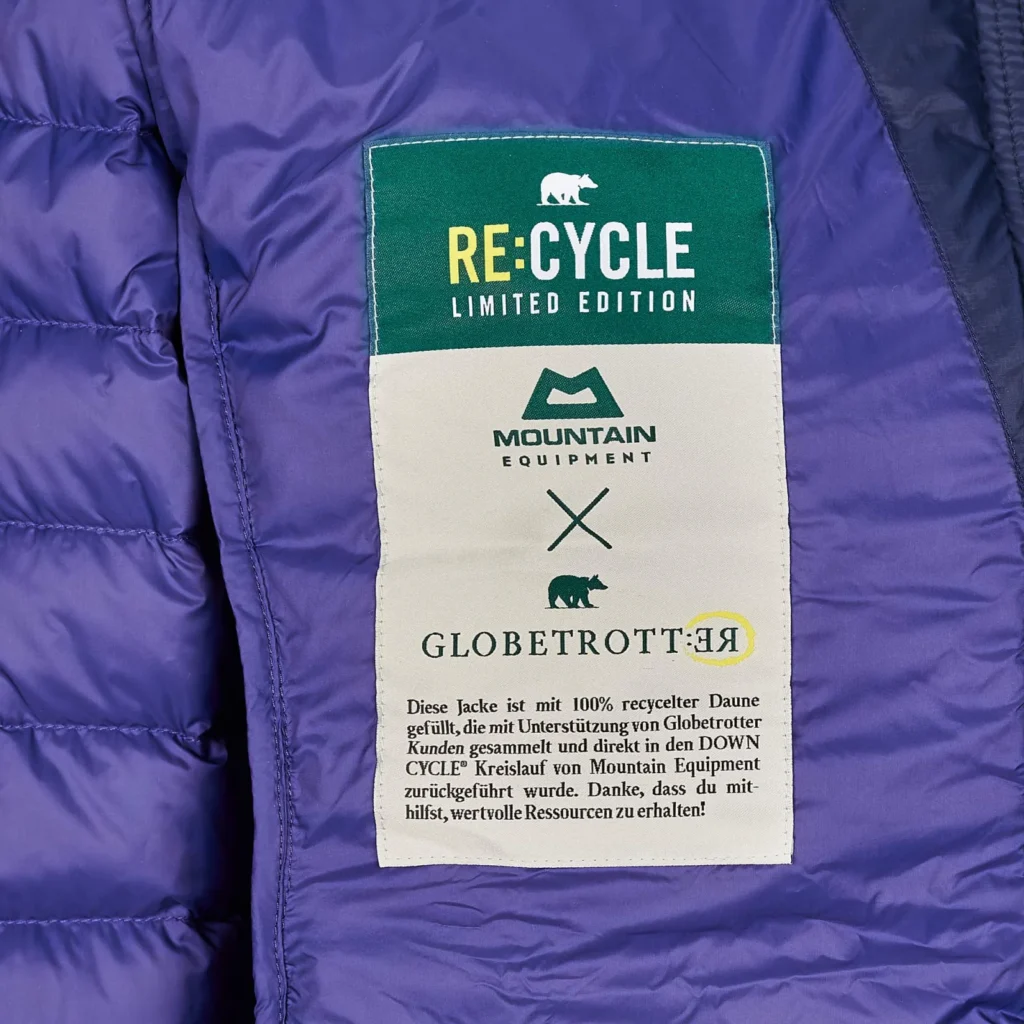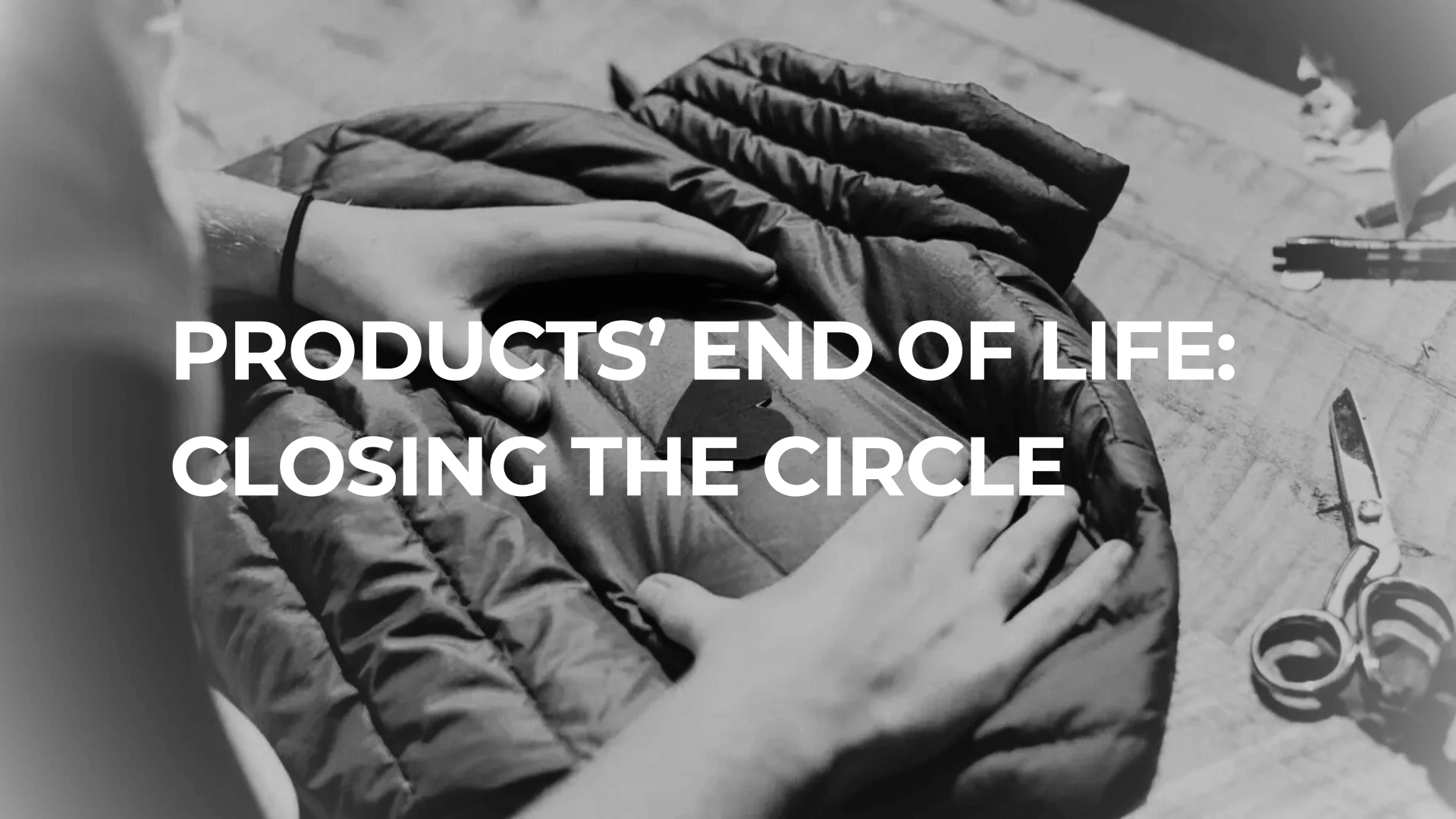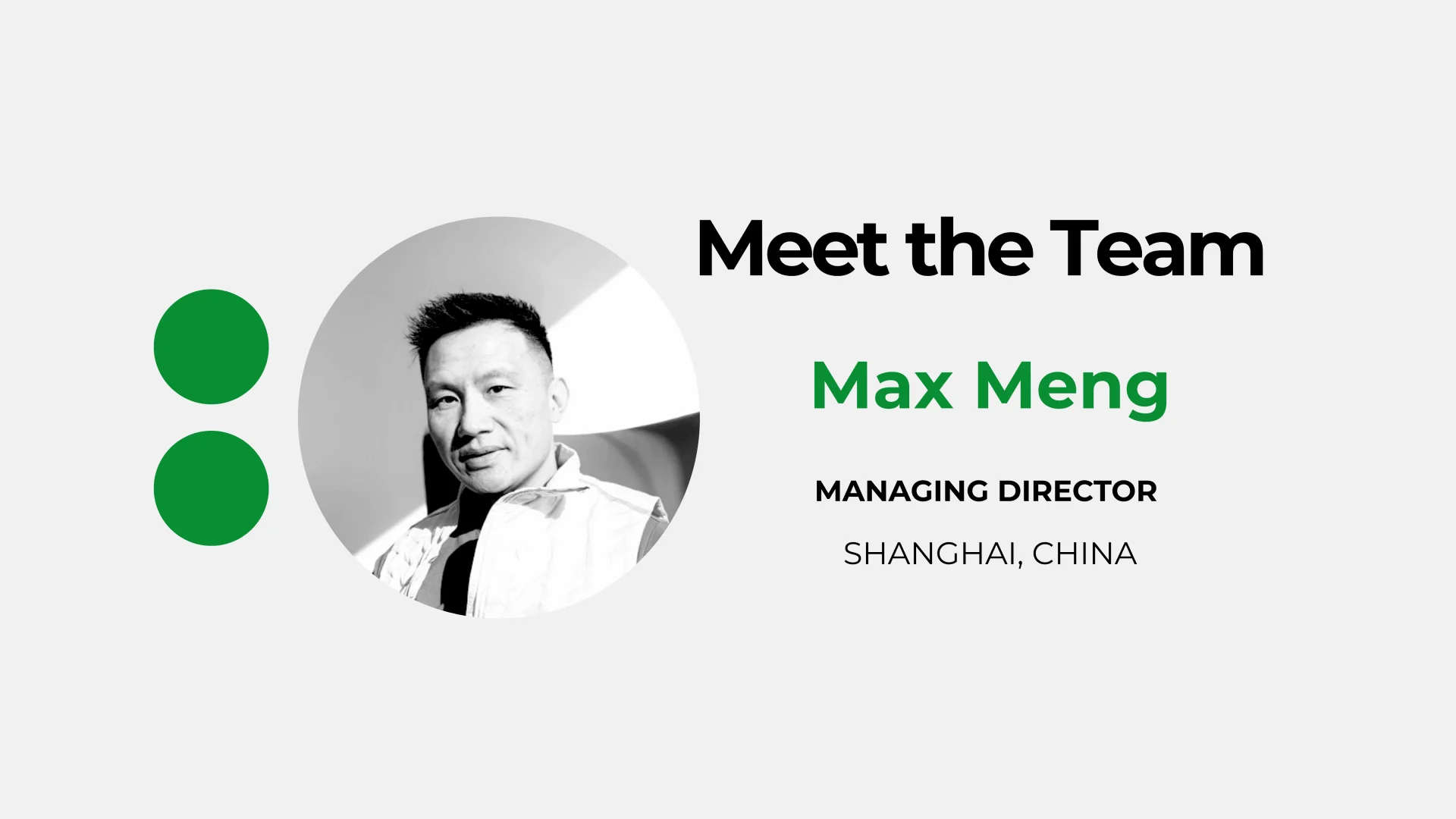A Circular Solution for Apparel and Fashion Brands:
Re:Down’s partnerships in Down Recycling
As the fashion and outdoor industries strive for more sustainable practices, circularity has become a key pillar in reducing environmental impact. One major opportunity lies in the recycling of down products—an energy-intensive but highly valued material found in jackets, duvets, and sleeping bags. By repurposing down, brands can significantly lower their environmental footprint and meet growing consumer expectations for eco-conscious practices.
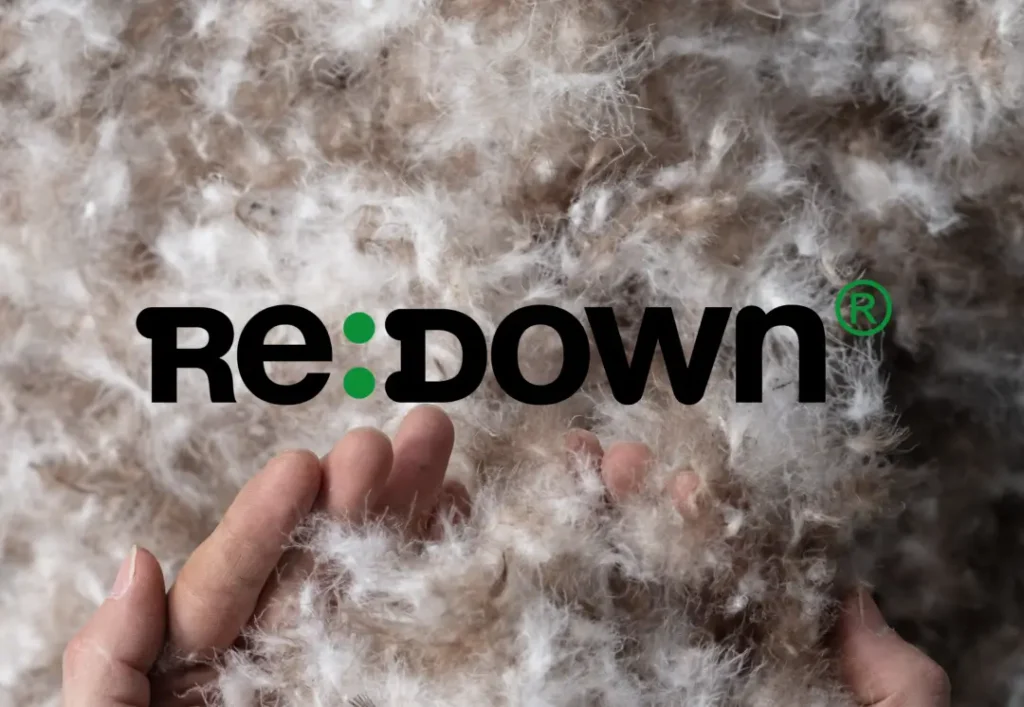
We at Re:Down, a leader in down recycling, offer a sustainable alternative to discarding used down items. For sport apparel and fashion brands seeking to integrate sustainability into their business models, partnering with Re:Down provides a way to reduce waste while enhancing consumer trust.
The Role of Down Recycling in Sustainable Business Models
Down, harvested from ducks and geese, has long been prized for its thermal properties, offering superior warmth in both apparel and bedding. However, like many other materials, , its environmental cost is significant. Although virgin down is a byproduct of the food industry, it still requires substantial resources to raise the birds (land, feed, water, and energy). In contrast, down recycling reduces the demand for new down by restoring used down feathers to their original insulating properties.
Recycling down is not only environmentally beneficial but also highly efficient. The recycling process used by Re:Down involves thorough cleaning and sterilization to ensure the feathers are as good as new. Recycled down retains its lightweight, insulating properties, allowing it to perform similarly to virgin down. This process allows brands to minimize their ecological impact without compromising on quality.
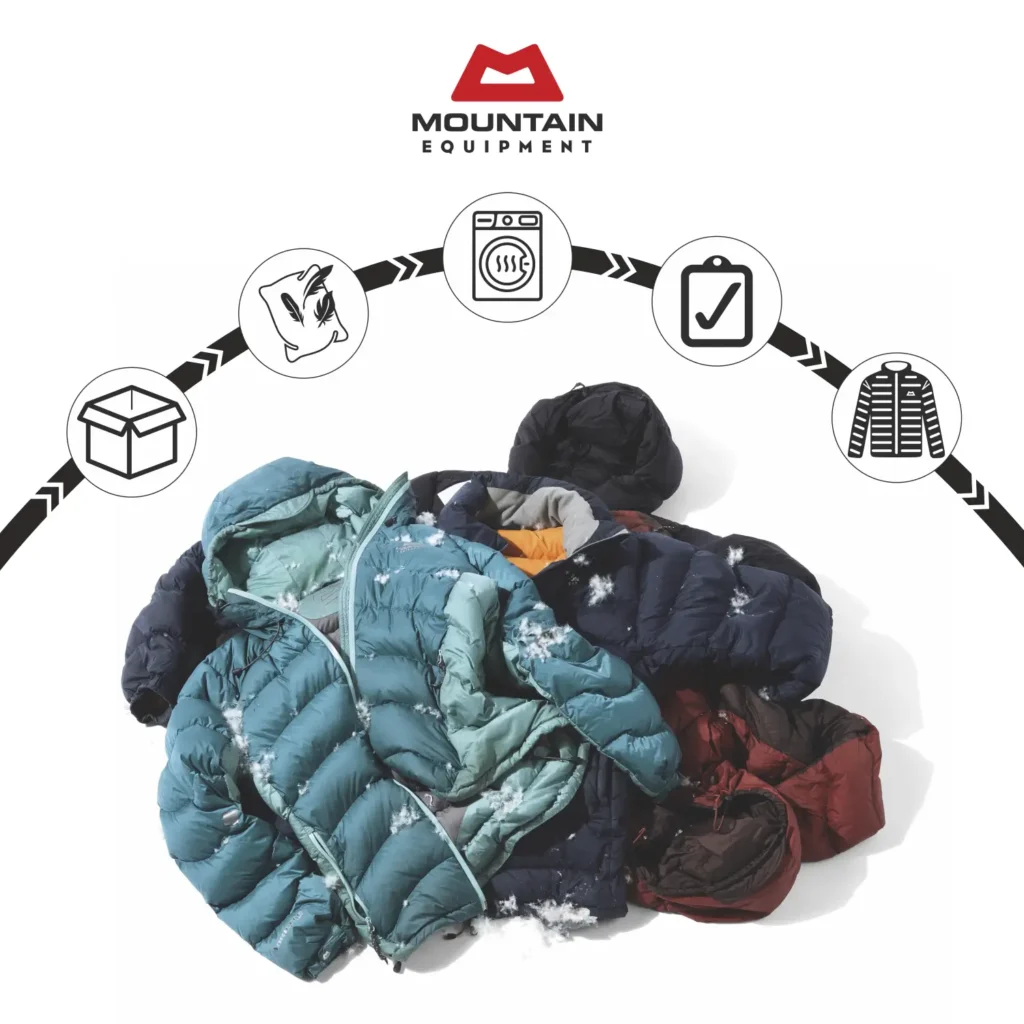
The Business Case for Engaging in Down Recycling
Brands that incorporate down recycling into their supply chain stand to benefit in several ways:
Success Stories: Leading the Way with Recycled Down
Brands across Europe are already setting an example in down recycling, demonstrating the effectiveness of sustainable business practices.
Alpkit: A Sustainable Collaboration with Re:Down
British outdoor brand Alpkit has taken a strong stand on sustainability through its partnership with Re:Down.
Since 2022, Alpkit has implemented a successful collection initiative, encouraging customers to return old down products. Drop-off points and a free mail-in service make it easy for consumers to participate in a circular economy, reinforcing Alpkit’s mission to reduce waste.
In just over two years, the initiative has collected and repurposed more than 2 tons of used down products. Alpkit’s focus on community engagement has been key to the program’s success, emphasizing shared environmental responsibility. Their partnership with Re :Down has not only increased awareness of down recycling but also proven that it’s possible to meet high-performance standards with recycled materials.
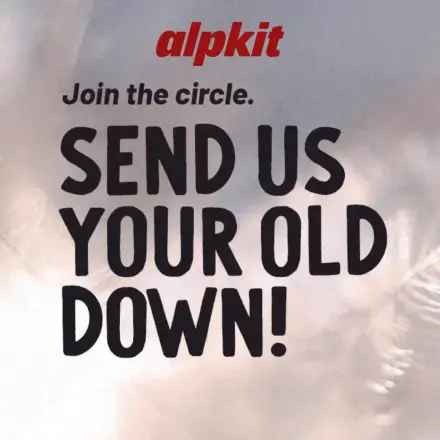
AlpKit initiative: https://eu.alpkit.com/blogs/news/recycle-your-down-jacket-duvet-or-sleeping-bag-with-re-down?storeRedirect=EU
Mountain equipment: Scaling Sustainability in Germany
Mountain Equipment, another well-established British brand, has embraced down recycling in Germany, becoming also a model for international brands.
Mountain Equipment launched its first down collection campaign in Germany in partnership with Re :Down and JDAV (the German Alpine Youth Association) in 2019. In just two months, nearly 3 tons of used down products were gathered. Building on this momentum, Mountain Equipment partnered with German retailer Globe Trotter in 2023 to expand the initiative, and customers now regularly send used down products directly to the brand’s German warehouse for recycling.
This approach shows the potential of consumer-facing collection systems to make a tangible environmental impact, reinforcing Mountain Equipment’s commitment to sustainability.
Listen to Mountain Equipment’s podcast on recycling down (in German) https://neuehorizonte.podigee.io/6-kreislaufwirtschaft-teil-2-recycelte-daune
Read more about JDAV § Mountain Equipment initiative: https://www.mountain-equipment.com/pages/jdav
Read more about Globe Trotter § Mountain Equipment initiative: https://www.globetrotter.de/magazin/downcycling-jacke/
Decathlon: Leveraging Mass Market Reach for Greater Impact
Decathlon, a major French sporting goods retailer, launched its down recycling initiative with Re:Down in 2024. With around 300 stores across France, Decathlon provides convenient drop-off points for consumers to recycle their old down products. The initial drive has already resulted in the collection and reprocessing of over 4,000 jackets, showcasing the scalability of large retail networks in promoting sustainability. The brand plans to further expand this effort, working with textile waste collectors to streamline the process.
Decathlon initiative: https://engagements.decathlon.fr/la-fin-de-vie-de-nos-produits
The Role of Mass-Market Retailers in the Recycling Movement
Mass-market retailers like Decathlon have a critical role to play in the future of down recycling:
How Re:Down supports Brand Partnerships:
From Product Collection to Repurposing
Re:Down offers a comprehensive system that allows brands to collect and recycle down-filled items :
Collection: Brands can initiate in-store or mail-based collection programs, enabling customers to responsibly dispose of worn-out jackets, duvets, and sleeping bags.
Processing: Collected items are sent to Re:Down’s recycling facilities, where the feathers are extracted, sorted, cleaned and sterilized. The process restores down to high-quality standards without relying on virgin resources.
Upcycling Non-Down Components: Beyond the feathers, Re:Down also focuses on repurposing the non-down components of products, such as zippers, fabrics, and synthetic linings (Read our article on our partnership with Iteratif. Some of these materials are upcycled into other useful products like insulating construction materials or organic fertilizers, further ensuring that nothing goes to waste.
Product Reintegration: Recycled down is then integrated into new products, allowing brands to offer high-performance items that tell a sustainability story.
As the outdoor and fashion sectors continue to evolve, it’s becoming increasingly clear that sustainability will play a central role in defining future success. The incorporation of recycled down into product lines can be a key driver of this transformation. With more brands adopting circular business models, down recycling is likely to become a standard practice rather than an exception.
Inspiring a Collective Movement: A Call to Brands
Re :Down’s partnerships with Alpkit, Mountain Equipment, and Decathlon highlight the possibilities for the sports apparel and fashion industries. The power of these collaborations shows that down recycling can become a standard practice, not an exception.
As more brands engage in down recycling, collaboration will be key to create this industry-wide change. Imagine the impact if every outdoor and fashion brand committed to recycling down. This collective effort would not only minimize waste but also encourage a culture of responsible consumption.
Now is the Time to Act
Whether you’re a niche outdoor brand or a mass-market leader Re:Down, is ready to partner with you in scaling sustainability efforts. This is a unique opportunity for sports apparel and fashion brands to minimize the industry’s footprint.
One recycled jacket at a time.
Together, we can make a difference. Join Us in Creating a Circular Industry
Posted on 12月 10, 2024
